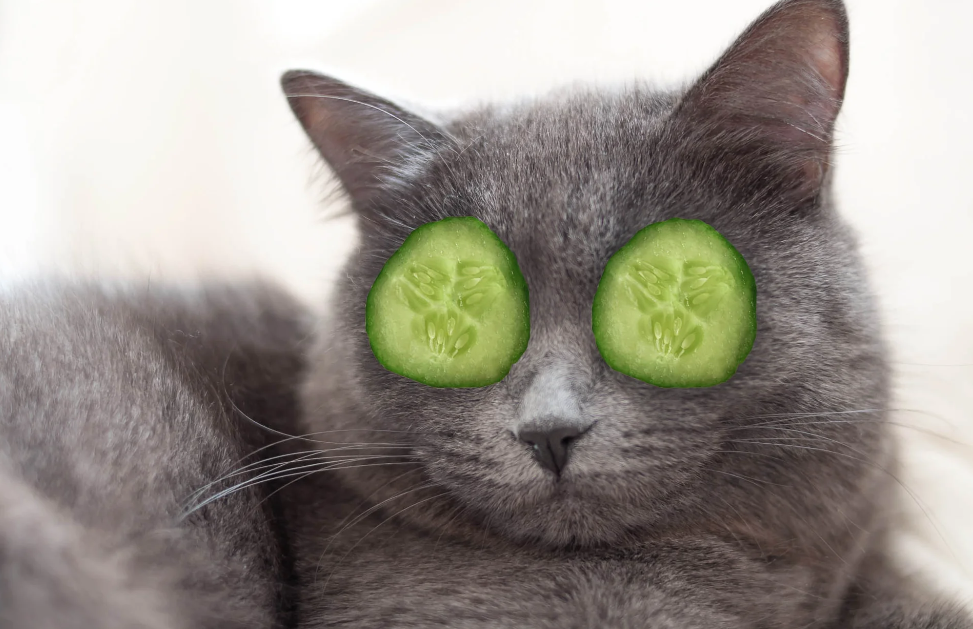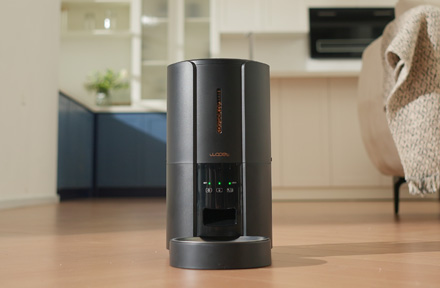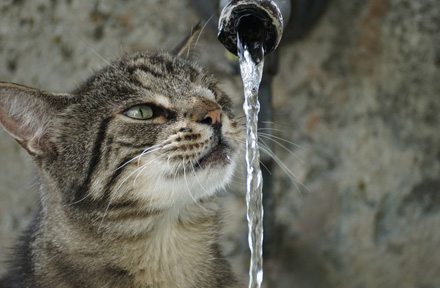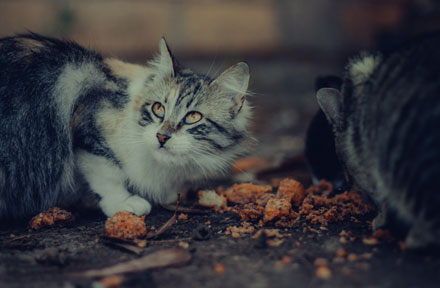Feb 22, 2025
Author:Jackson Watson

Cats are known for their curious nature and sometimes unpredictable eating habits. As a pet owner, you may have wondered whether certain human foods are safe for your feline companion. One such food is the cucumber. This green, crunchy vegetable is a staple in many human diets, but is it safe for cats? In this article, we’ll explore the benefits, risks, and proper ways to introduce cucumbers to your cat’s diet.
The simple answer is yes—cucumbers are generally safe for cats to eat in moderation. They are not toxic or harmful when given in small amounts. Cucumbers are primarily composed of water, making them a hydrating snack, especially in hot weather. However, like any new food, cucumbers should be introduced cautiously and in appropriate portions.
Cucumbers contain several nutrients that could offer minor health benefits to your cat, including:
Hydration: With over 95% water content, cucumbers can help keep your cat hydrated, especially if they do not drink enough water.
Vitamins and Minerals: Cucumbers contain small amounts of vitamins K, C, and magnesium, which contribute to overall health.
Low in Calories: Cucumbers are low in calories, making them a non-fattening treat option for overweight cats.
Fiber: The skin of cucumbers provides fiber, which can aid in digestion.
While cucumbers are not toxic, there are some risks to be aware of:
Digestive Issues: Some cats may experience an upset stomach, vomiting, or diarrhea after eating cucumbers, particularly if they are not used to them.
Choking Hazard: The texture and size of cucumber slices can pose a choking risk. Always cut cucumbers into small, manageable pieces.
Pesticides and Chemicals: Store-bought cucumbers often have a wax coating or pesticide residue. Always wash cucumbers thoroughly or peel the skin before offering them to your cat.
Unfamiliarity: Some cats might not enjoy the taste or texture of cucumbers and may refuse to eat them altogether.
If you decide to give your cat a taste of cucumber, follow these steps to ensure a safe and positive experience:
Wash and Peel (if necessary): Wash cucumbers thoroughly to remove any pesticides. If preferred, peel off the skin to reduce the risk of digestive issues.
Cut Into Small Pieces: Slice the cucumber into thin, bite-sized pieces to prevent choking.
Start with a Small Amount: Offer a tiny piece to see how your cat reacts. Some cats may be curious and willing to try, while others may be disinterested.
Monitor for Reactions: Observe your cat for any signs of an upset stomach or allergic reactions. If any negative symptoms occur, avoid giving cucumbers in the future.
Avoid Seasonings and Additives: Never offer cucumbers that have been pickled, seasoned, or mixed with other foods, as certain ingredients (such as garlic and onion) are toxic to cats.
One of the most popular internet trends features cats reacting in fear to cucumbers placed behind them unexpectedly. But why do cats react this way?
Surprise Factor: Cats are naturally cautious animals. When they turn around to see an unfamiliar object suddenly behind them, they may react with fear.
Resemblance to Snakes: Some experts believe that the long, green shape of cucumbers might be mistaken for a snake, triggering a cat’s instinctive fear response.
Disrupting Their Space: Cats are territorial creatures. Placing an unknown object in their usual environment can cause stress or anxiety.
While these videos may seem amusing, scaring a cat with cucumbers is not recommended, as it can cause unnecessary stress and anxiety.
If your cat enjoys the occasional treat but does not seem interested in cucumbers, consider these safe alternatives:
Cooked Pumpkin: A great source of fiber that aids digestion.
Cooked Carrots: Soft and easy to digest, providing vitamin A.
Blueberries: High in antioxidants and a fun, bite-sized treat.
Plain Cooked Chicken: A protein-packed treat for carnivorous felines.
Cucumbers can be a safe, hydrating, and low-calorie treat for cats when given in moderation. However, not all cats will enjoy them, and some may experience digestive issues. Always introduce new foods gradually, and consult your veterinarian if you have concerns about your cat’s diet.
If your feline friend enjoys cucumbers, they can be a refreshing snack, but they should never replace a balanced diet designed for their specific nutritional needs. As always, responsible pet ownership involves knowing what’s best for your cat’s health and happiness.
Label:
Popular Post

What to Feed a Sick Dog With No Appetite? [2025 Guide]
May 16, 2023

Troubleshooting Common Issues with Automatic Pet Feeders: Tips & Tricks for Pet Owners
Oct 26, 2023

Why Does My Cat Cough After Drinking Water? 8 Potential Reasons
Mar 13, 2023

Why is My Cat Throwing up Water? Top 5 Causes Here
Feb 08, 2023

My Cat Only Eats A Little at A Time - What to Do?
Feb 27, 2023
$99.99
$129.99
Copyright © 2025 WOPET. All Rights Reserved.